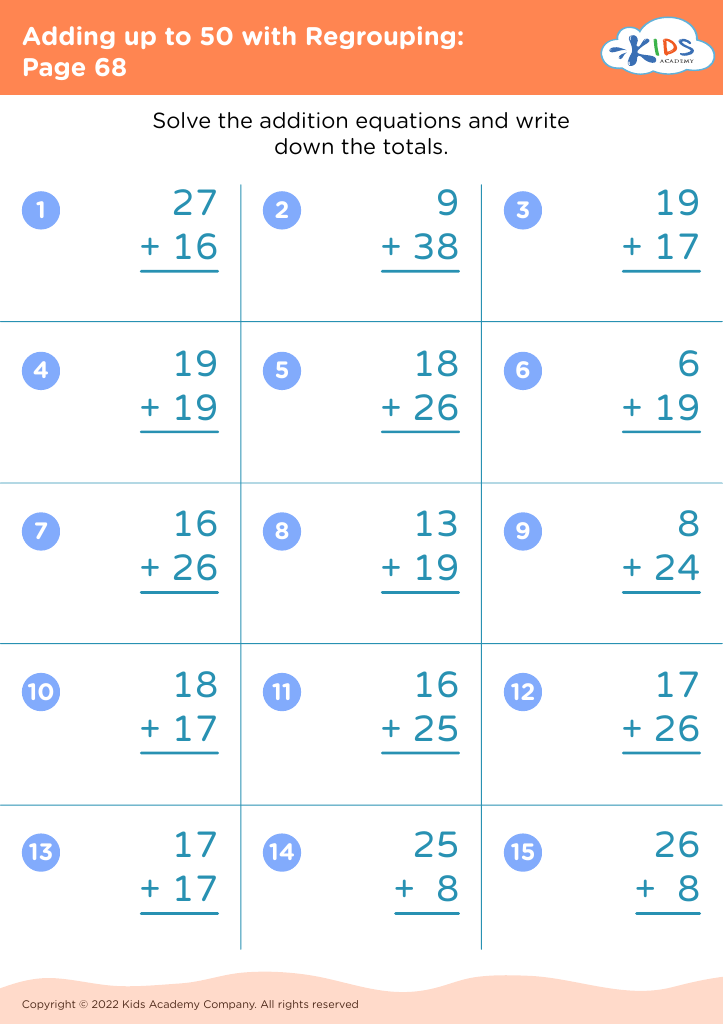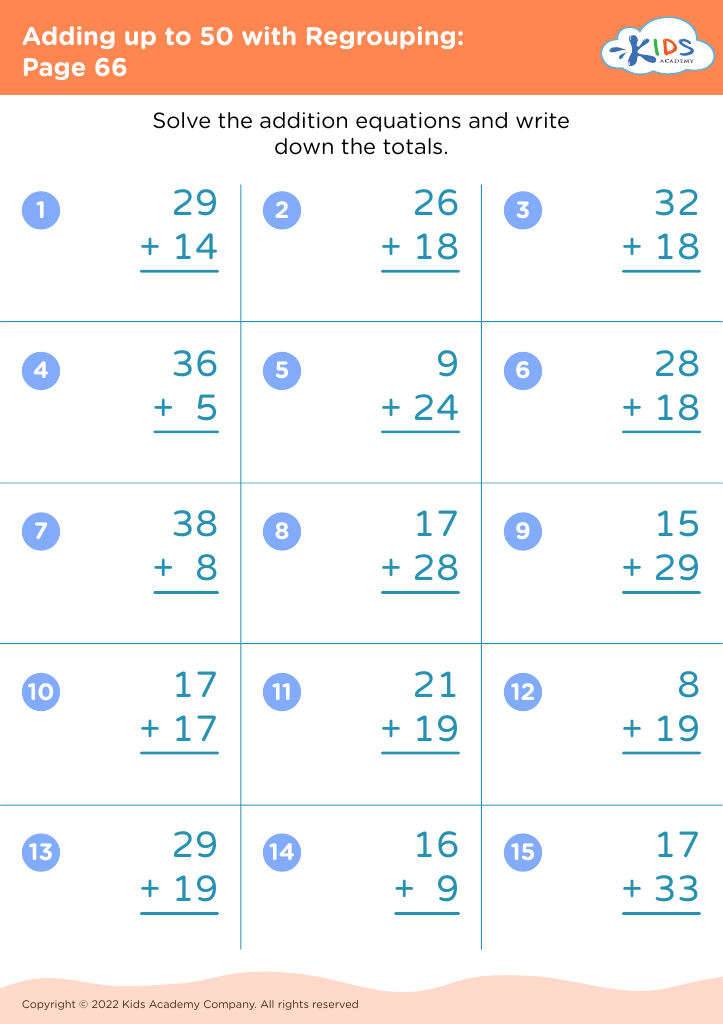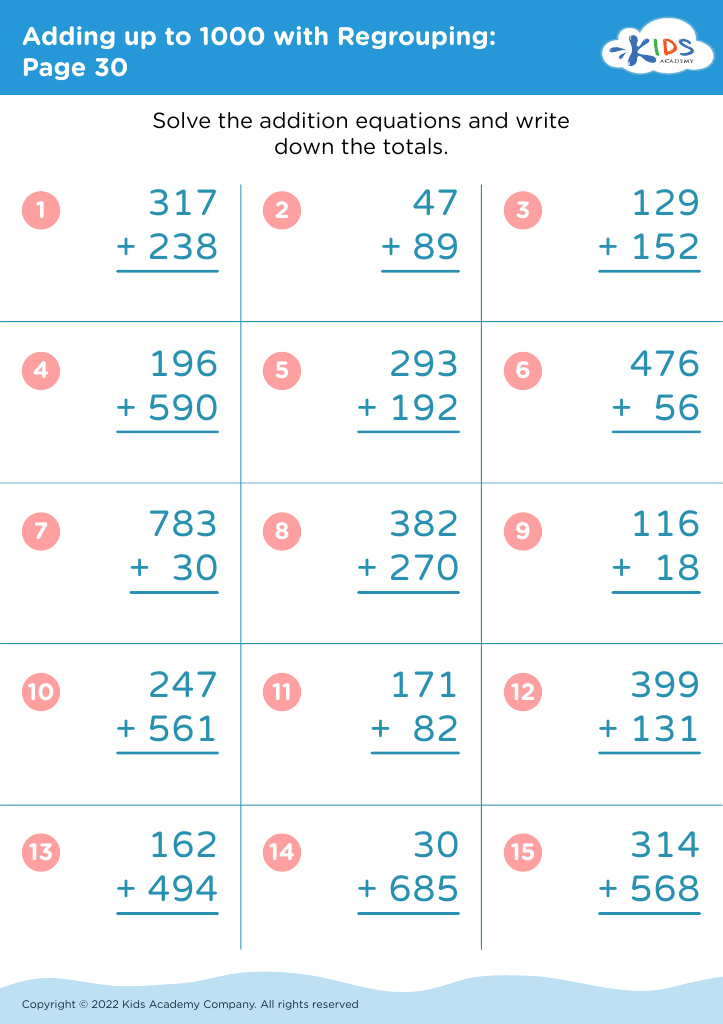Understanding seasons Addition Worksheets for Ages 6-7
3 filtered results
-
From - To
Explore our "Understanding Seasons Addition Worksheets" designed specifically for children ages 6-7! These engaging worksheets combine the concept of seasonal changes with fun addition practices, helping young learners grasp math in a meaningful context. Kids will enjoy solving addition problems that relate to various seasons, enhancing their understanding of the natural world while improving their math skills. Perfect for both classroom and home use, these worksheets are colorful and interactive, making learning enjoyable. Help your child develop a strong foundation in addition and foster a love for both math and nature with these creative resources! Download now to get started!
Understanding seasons is crucial for children aged 6-7 as it lays the foundation for their comprehension of science, nature, and the world around them. At this age, children are naturally curious about their environment, and exploring the changing seasons enhances their observational skills and critical thinking.
Seasonal changes affect not only weather patterns but also ecosystems and human activities. Teaching children about the seasons helps them recognize the cyclical nature of life, promotes awareness of the effects of weather on daily activities, and fosters appreciation for the outdoors. Moreover, seasonal themes can be integrated into various subjects such as math, where children can practice addition through seasonal activities, like counting how many different types of leaves they find in autumn or how many days until spring.
Engaging children in discussions about seasons also encourages communication skills and enhances vocabulary. By illustrating concepts through interactive activities, such as crafts or stories, teachers and parents can create memorable learning experiences that stimulate a child's imagination. Ultimately, understanding seasons not only enriches academic learning but also supports emotional and cognitive development, making it an essential aspect of early education.









.jpg)










